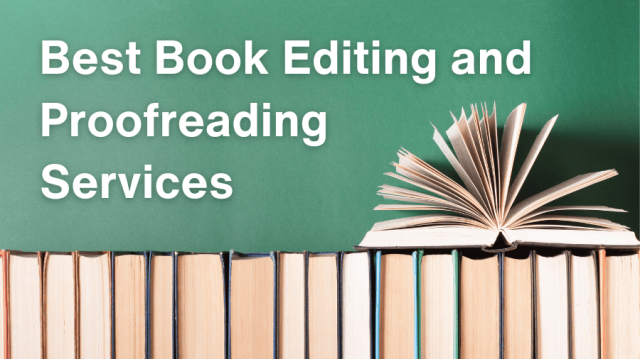The journey from drafting a manuscript to publishing a finished book is a complex and demanding process. One of the most critical steps in this journey is editing. Book editing services play an essential role in transforming a raw manuscript into a polished and professional piece of work. These services are vital for authors seeking to refine their narrative, correct errors, and enhance readability. This article explores the significance of book editing services, the various types of editing, and how these services contribute to the success of a manuscript.
The Importance of Book Editing
Editing is a crucial component of the publishing process. It ensures that a manuscript is clear, coherent, and free of errors, enhancing its overall quality and readability. For authors, particularly those who are self-publishing, investing in professional Book Editing Services can make the difference between a good book and a great one.
Firstly, editing helps to refine the author's voice and style. While writing is a creative endeavor, it often requires a second pair of eyes to polish the narrative and ensure consistency in tone and style. Editors work closely with authors to maintain their unique voice while enhancing clarity and fluidity.
Secondly, editing is essential for correcting grammatical, spelling, and punctuation errors. Even the most experienced writers can overlook mistakes in their work. Professional editors have the expertise to identify and correct these errors, ensuring that the manuscript adheres to grammatical conventions and stylistic guidelines.
Lastly, editing improves the overall structure and coherence of the manuscript. Editors assess the organization of ideas, the flow of the narrative, and the development of characters and plot. They provide valuable feedback on pacing, transitions, and the logical progression of the story, helping authors to create a more engaging and compelling read.
Types of Book Editing
Book editing encompasses several different types, each focusing on specific aspects of the manuscript. Understanding these different types of editing can help authors determine which services they need to perfect their work.
Developmental Editing
Developmental editing, also known as content or substantive editing, is the most comprehensive form of editing. It focuses on the overall structure and content of the manuscript, addressing elements such as plot, character development, pacing, and thematic consistency.
In a developmental edit, the editor works closely with the author to refine the narrative. This may involve reorganizing chapters, rewriting sections, and adding or deleting content to enhance the story. The goal of developmental editing is to strengthen the manuscript's foundation, ensuring that it is well-structured and compelling.
Structural Editing
Structural editing is similar to developmental editing but focuses more on the organization and flow of the manuscript. It involves evaluating the arrangement of chapters and sections, ensuring that the narrative progresses logically and smoothly.
Structural editors assess the effectiveness of the manuscript's structure, looking for inconsistencies, redundancies, and gaps in the narrative. They provide feedback on how to improve transitions, enhance pacing, and maintain coherence throughout the manuscript.
Copy Editing
Copy editing, also known as line editing, focuses on the finer details of the manuscript. This type of editing addresses grammar, spelling, punctuation, syntax, and style. Copy editors ensure that the manuscript adheres to language conventions and is free of errors.
In addition to correcting errors, copy editors enhance readability by improving sentence structure, word choice, and overall clarity. They also ensure consistency in terms of tense, point of view, and formatting. Copy editing is essential for producing a polished and professional manuscript.
Proofreading
Proofreading is the final stage of the editing process, focusing on catching any remaining errors or typos that may have been missed during previous rounds of editing. Proofreaders meticulously review the manuscript to ensure it is error-free and ready for publication.
Unlike other forms of editing, proofreading does not involve making significant changes to the content or structure. Instead, it focuses on correcting minor errors in grammar, spelling, punctuation, and formatting. Proofreading is the last line of defense before the manuscript is published, ensuring it is polished and professional.
The Role of Book Editing Services
Professional book editing services offer a range of benefits for authors, providing the expertise and support needed to perfect a manuscript. These services are offered by experienced editors who understand the intricacies of language and storytelling, helping authors to refine their work and achieve their publishing goals.
Expertise and Experience
Book editing services employ skilled editors with extensive experience in the publishing industry. These editors have a deep understanding of narrative structure, character development, and language conventions. Their expertise allows them to provide valuable feedback and guidance, helping authors to improve their manuscripts.
Professional editors also stay up-to-date with industry trends and standards. They understand what publishers and readers are looking for, and can help authors to tailor their manuscripts to meet these expectations. This insider knowledge is invaluable for authors seeking to produce a high-quality and marketable book.
Objective Feedback
One of the most significant benefits of professional editing services is the objective feedback they provide. Authors are often too close to their work to see its flaws and weaknesses. Editors offer a fresh perspective, identifying issues that the author may have overlooked.
This objective feedback is crucial for improving the manuscript. Editors provide constructive criticism and suggestions for improvement, helping authors to enhance their narrative, refine their writing, and address any weaknesses in their work. This collaborative process leads to a stronger and more polished manuscript.
Time and Effort Savings
Editing a manuscript is a time-consuming and labor-intensive process. For authors who are juggling writing with other responsibilities, finding the time and energy to thoroughly edit their work can be challenging. Professional editing services take on this burden, allowing authors to focus on their writing.
By outsourcing the editing process, authors can save significant time and effort. Professional editors work efficiently and effectively, ensuring that the manuscript is edited to a high standard within a reasonable timeframe. This allows authors to move forward with their publishing journey more quickly and smoothly.
Enhanced Marketability
A well-edited manuscript is more likely to attract the attention of publishers and readers. Professional editing services enhance the quality and professionalism of the manuscript, making it more appealing to literary agents, publishers, and readers.
In the competitive publishing industry, a polished and professional manuscript stands out. It demonstrates the author's commitment to quality and increases the likelihood of the manuscript being accepted by publishers. For self-publishing authors, a well-edited book is more likely to receive positive reviews and generate sales.
The Process of Working with Book Editing Services
Working with book editing services typically involves several steps, from selecting the right service to implementing the editor's feedback. Understanding this process can help authors to make the most of the services and achieve the best possible outcome for their manuscript.
Selecting the Right Service
The first step in working with book editing services is selecting the right service for your needs. This involves understanding the different types of editing and determining which services are required for your manuscript. Authors should consider their goals, the stage of their manuscript, and their budget when selecting an editing service.
It is also important to choose a reputable and experienced editing service. Authors should research potential editors, read reviews, and ask for samples of their work. Many editing services offer free consultations or sample edits, allowing authors to assess the editor's skills and compatibility with their work.
Submitting the Manuscript
Once an editing service has been selected, the next step is submitting the manuscript for editing. This typically involves sending a digital copy of the manuscript to the editor, along with any specific instructions or requests. Authors should communicate their goals and expectations clearly, providing the editor with any relevant background information or context.
The Editing Process
The editing process involves the editor reviewing and revising the manuscript according to the agreed-upon type of editing. This process can take several weeks, depending on the length and complexity of the manuscript. Editors may use tools such as track changes and comments to provide feedback and make revisions.
Throughout the editing process, communication between the author and editor is essential. Authors should be open to feedback and willing to collaborate with the editor to improve their manuscript. Regular updates and discussions can help to ensure that the editing process runs smoothly and meets the author's expectations.
Implementing Feedback
After the editor has completed their revisions, the author will receive the edited manuscript along with detailed feedback and suggestions. Implementing this feedback is a crucial step in the editing process. Authors should carefully review the editor's comments and revisions, considering how to incorporate the feedback into their manuscript.
This may involve making additional revisions, rewriting sections, and addressing any issues highlighted by the editor. Authors should be prepared to invest time and effort into this process, as it is essential for achieving a polished and professional final product.
Final Review
Once the author has implemented the editor's feedback, the manuscript should undergo a final review. This may involve a second round of editing or proofreading to ensure that all errors have been corrected and the manuscript is ready for publication. The final review is the last opportunity to catch any remaining issues and ensure the manuscript is of the highest quality.
Conclusion
Book editing services are an essential investment for authors seeking to perfect their manuscripts and achieve publishing success. These services provide the expertise, objective feedback, and support needed to refine a manuscript, enhancing its quality and marketability. By understanding the different types of editing and the benefits of professional editing services, authors can make informed decisions and maximize the potential of their work.
The process of working with book editing services involves selecting the right service, submitting the manuscript, collaborating with the editor, implementing feedback, and conducting a final review. By embracing this process and working closely with professional editors, authors can transform their manuscripts into polished and professional books that stand out in the competitive publishing industry.
In the end, the investment in book editing services pays off in the form of a well-crafted manuscript that captivates readers, attracts publishers, and achieves literary success.






